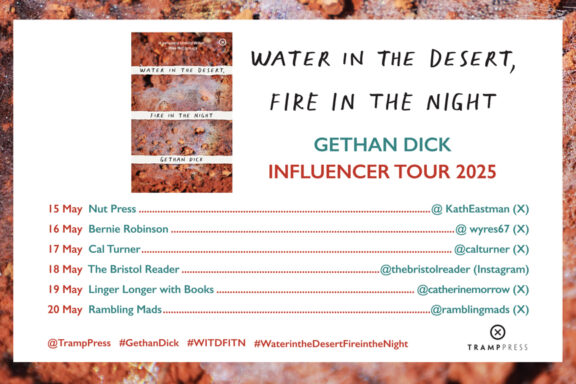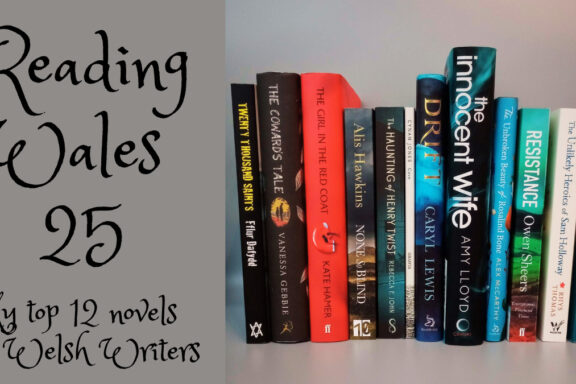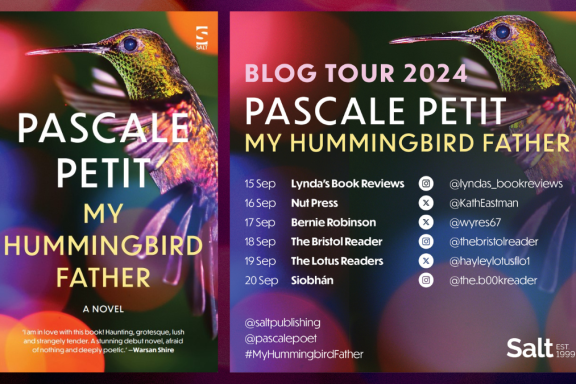 Two things drew me to Keith Stuart’s novel, A Boy Made of Blocks: the first was that it was inspired by his own experiences with one of his sons, who was diagnosed with autism, and I hoped it might help me see the world through the eyes of someone with autism and those closest to them, and perhaps come to a better understanding of it. Secondly, what with the father and son in the book bonding over Minecraft, I figured A Boy Made of Blocks might finally shed some light on the (mysterious to me) appeal of console games for people like Sam, his dad, Alex, and my own husband.
Two things drew me to Keith Stuart’s novel, A Boy Made of Blocks: the first was that it was inspired by his own experiences with one of his sons, who was diagnosed with autism, and I hoped it might help me see the world through the eyes of someone with autism and those closest to them, and perhaps come to a better understanding of it. Secondly, what with the father and son in the book bonding over Minecraft, I figured A Boy Made of Blocks might finally shed some light on the (mysterious to me) appeal of console games for people like Sam, his dad, Alex, and my own husband.
Meet thirtysomething dad, Alex
He loves his wife Jody, but has forgotten how to show it. He loves his son Sam, but doesn’t understand him. Something has to change. And he needs to start with himself.
Meet eight-year-old Sam
Beautiful, surprising, autistic. To him the world is a puzzle he can’t solve on his own.
But when Sam starts to play Minecraft, it opens up a place where Alex and Sam begin to rediscover both themselves and each other . . .
Can one fragmented family put themselves back together, one piece at a time?
When the book opens, Alex is in a bad place: he can’t seem to do anything right, or hold anything much together. His family has reached crisis point and his wife, Jody, decides to show him some tough love in a last attempt to get him to sort himself out and start pulling his weight in the family. I could understand Jody’s frustration and how she felt that Alex was behaving just like another child of the family, rather than a real partner to her, but I had a certain amount of sympathy for Alex too. I’m not a parent, and I’ve definitely not been blessed with much patience, so I know that I would struggle to cope in Alex and Jody’s shoes, where they constantly feel as if they’re treading on eggshells and any paths to communication with Sam run through a minefield. Of course, that doesn’t mean that one parent can abdicate responsibility and leave it all up to the other either and Alex did frustrate me at times, as a character who is prone to wallowing in his own miserable situation while others get on with things around him. And yet, something about him had me rooting for him to find a way back to Sam, and Jody.
Jody tasks him with getting to know his son, Sam. At first, Alex is offended and hurt: he’s the boy’s father, surely he knows him? But when he does his best to minimise (or even avoid completely) trips to the park or to the cafe they both like because they are so fraught with flashpoint situations, he realises that Jody might be right and he does need a different approach. Enter Minecraft, Sam’s current obsession and something that creates a rare happy place for him to be. Reluctantly at first, Alex decides to learn about the game, so that they have something to talk about but soon finds himself getting pulled in to playing it with his son. And this led to some of the most emotional scenes in the book for me. As father and son build and destroy worlds, and go off on quests together, they start to find a way back to each other. They are getting to know each other, and properly talking to each other for the first time. And this is partly helped by the roles being reversed: Sam knows more about the world of Minecraft, and this is a novelty for him. He can help someone else and has found something at which he can compete or hold his own with others. You feel the boy opening up and growing in confidence, while his dad takes tentative steps in this new world of blocks. It’s not a disadvantage for Alex to be immature here because he has Sam to take the lead.
The scenes where Sam and his dad are playing Minecraft are some of the best in the novel, and there’s a moment where others join in the game and the boy tastes independence, which almost broke me. I was in tears at different points throughout A Boy Made of Blocks and didn’t mind what people on the bus thought about that. I wasn’t there. I was building a fortress of blocks, while feeling around for tissues in my bag, and hoping not to have to deal with any monsters. I felt as if I got a real insight into how Sam’s autism affected his way of thinking and how he sees the world. I could see why Minecraft’s world appealed to him, what he got pleasure from, what made him afraid and why, and this helped me to see what it was about the real world that was so different and scary for this little boy.
What A Boy Made of Blocks ultimately shows is that if we give someone our time, and attempt to understand their interests, and what it is that makes them so enthusiastic or passionate about them, or just plain happy, then we’re a good way towards understanding them better. And that can only help and deepen our relationship with them, surely? A Boy Made of Blocks is not only a touching story of a father-son dynamic gone awry, and how modern life can break fragile things, such as our relationships and families, but it also shows how that could be mended through time spent and patient understanding. A Boy Made of Blocks illustrates the healing power of time together on another’s interests, not yours. And yes, it definitely succeeded in showing me why games such as Minecraft appeal even if I’m not quite ready to pick up a controller and give one a go.
A Boy Made of Blocks by Keith Stuart is published by Sphere, an imprint of Little, Brown and is currently available in hardback and as an ebook with the paperback due out at the end of the month. You can find it at Amazon UK, Hive (supporting your local independent bookshop) and Waterstones. To follow the Author, check out his Tumblr or Twitter.



I am also interested in understanding autism better, and I have always felt, on just about any subject, that fiction is often more instructive than non fiction, because we become so immersed that we don’t realise what we’re taking on board.
Yes, I think you’re right, not least because you’re seeing the characters as real people with lives rather than case studies to illustrate a point.